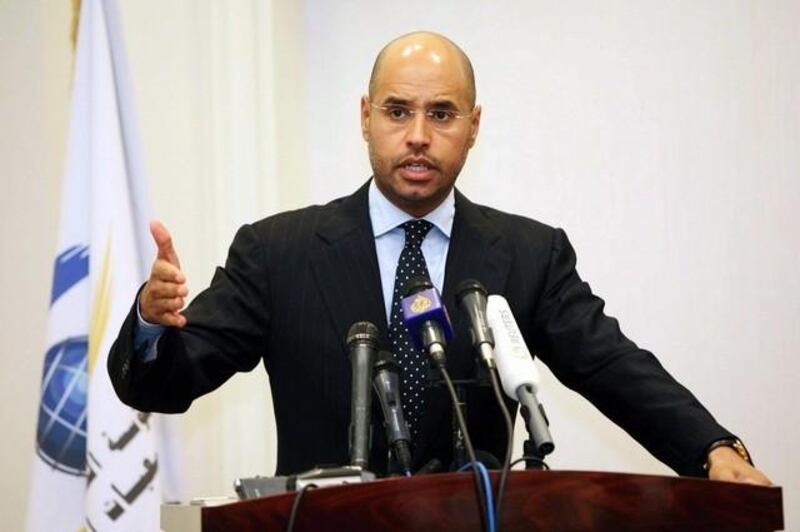Authorities in the Libyan capital Tripoli say that two Russians arrested in May were involved in attempts to influence public opinion and swing possible future elections.
The Foundation for National Values Protection, a Russian NGO, said on Friday that two of its staff were arrested while carrying out opinion polls.
But according to Tripoli authorities, laptops and memory sticks discovered in their possession identified the men as working for Russia’s troll farm that “specialises in influencing elections that are to be held in several African states”.
A letter stamped by the attorney general’s office and obtained by Bloomberg named the troll farm as Fabrika Trollei, Russian for "troll factory", a collection of media sites and political organisations connected to Yevgeny Prigozhin, a Kremlin-linked Russian tycoon. Mr Prigozhin was placed on the US sanctions list last year for orchestrating Russian interference in the 2016 presidential election.
The United Nations and western countries have been trying for several years to hold elections in Libya as a way of bringing about an end to the impasse between the internationally recognised government in Tripoli and rival officials in Benghazi.
The internationally recognised Prime Minister Fayez Al Serraj said in March that Libya would hold presidential and parliamentary elections this year.
However the effort was derailed when Field Marshal Khalifa Haftar, the military commander whose forces control the east of the country, launched an offensive to take the capital in April. The military commander has received backing from Russia, France, Egypt and the UAE in fighting extremist militias in the country, although all have publicly called for a ceasefire in Tripoli.
Mr Prigozhin, a catering magnate also known as “Putin’s chef”, is believed to also be the mastermind behind the Russian mercenary group Wagner. The private fighting force played a prominent role in executing the Kremlin’s military strategy in Syria and has reportedly deployed to Libya to prop up Field Marshal Haftar's Libyan National Army.
Russia is seen as one of the most prominent international backers of Mr Haftar, who regularly visits Moscow and was a guest of honour on Russia's flagship aircraft carrier, the Admiral Kuznetov, in 2017. The Kremlin has also printed millions of dollars worth of dinars for his government.
Tarek Magerisi, a Libya analyst and policy fellow at the European Council on Foreign Relations think tank, says the decision to make the arrests may be part of a Tripoli strategy to encourage Moscow to tone down its support Mr Haftar.
"It seems that this is all part of a grander bargain they're trying to strike," he told The National.
Kremlin spokesman Dmitri Peskov said on Monday that Russia was aware of the arrest of its citizens in Libya and was taking steps to understand the reasons. "Our foreign office is working on this," Mr Peskov told reporters.
According to correspondence dated July 3 between the state prosecutor and a security chief in Tripoli seen by Bloomberg, a third Russian man had left the country just prior to the raid that led to the arrests.
The letter alleged that the Russian men had been involved in securing a meeting with Saif Al Islam, the son of the former Libyan leader Muammar Qaddafi who dominated the country’s politics for four decades.
President Vladimir Putin staunchly opposed Nato’s backing of opposition groups in Libya that led to the toppling of Qaddafi in 2011 and the country's descent into prolonged conflict. Russia’s Deputy Foreign Minister Mikhail Bogdanov has said Saif, who is wanted by the International Criminal Court, “should be part of the overall political process” in Libya.
Mr Magerisi said Russia appears not to have had any overt or top-down policy on Libya – except to remain open to all sides. Much of the engagement has been covert, he said, and on the initiative of individual ministries, and people like Mr Prigozhin.
“It's been successful,” he said. “Russia is sought out by all sides as a key ally, they have a presence on the ground and so their importance to any future peace is becoming more assured.”






